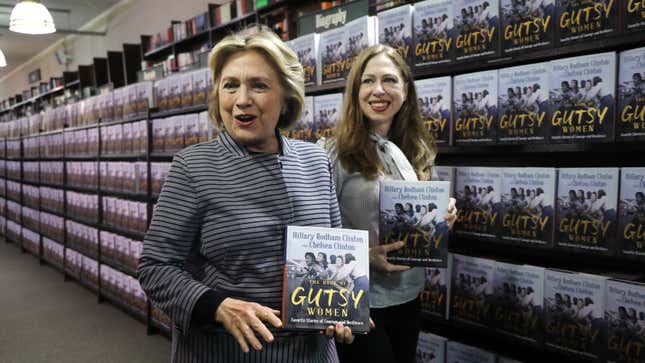Hillary Clinton and the TERF Trap
How generously should one read Clinton’s interview with the Sunday Times?
Latest

Hillary Clinton, ever the consummate politician, has always followed the prevailing political winds when it comes to LGBTQ rights. She came out in support of gay marriage when it became politically expedient, instead of a perceived liability. And she first began regularly and publicly speaking in support of trans rights during her 2016 presidential campaign, a shift which can be attributed to the success of advocates and activists in the past decade to force the Democratic Party to embrace, at the very least, the language of trans rights.
This is, for politicians like Clinton who are cautious by nature, exactly how politics works—her support for various issues is less driven by her inherent beliefs than reflecting back what has become the political norm. Which is why her recent comments on trans rights, and more specifically, trans women, during an interview with the prominent U.K. newspaper the Sunday Times, held as part of her and her daughter Chelsea Clinton’s press tour for The Book of Gutsy Women, are both odd and extremely telling.
The Sunday Times and its sister paper the Times are known for their transphobic coverage as well as for creating a hostile working environment for trans employees, and the interview reads as if Decca Aitkenhead is deliberately goading them. Aitkenhead brought up the topic by asking the two “if someone with a beard and a penis can ever be a woman.” The phrasing of this question, which parrots common transphobic and fear-mongering rhetoric of phantom hirsute men “just pretending” to be women, comes off as a transparent attempt to bait the pair. Chelsea responded with an unequivocal “yes.” Hillary, however, took the question as an opportunity to muse about how the issue is one which she is “just learning about”—her tweets about trans rights (beginning in 2015) and her support for a State Department rule change allowing trans people to change their gender on their passports with a doctor’s note in 2010, notwithstanding.
“Errr,” Hillary said, according to Aitkenhead’s account. “I’m just learning about this. It’s a very big generational discussion, because this is not something I grew up with or ever saw.” She added, “It’s going to take a lot more time and effort to understand what it means to be defining yourself differently.”
-

-

-

-

-

-

-

-

-

-

-

-

-

-

-

-

-

-

-

-

-

-

-

-

-

-

-

-

-

-

-

-

-

-

-

-

-

-

-

-








































